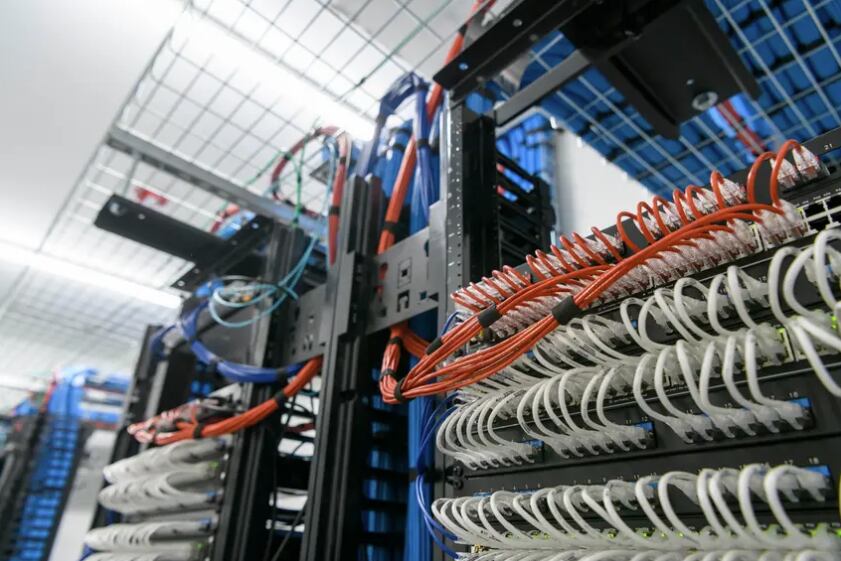Texas utility commission sues AG to block crypto power usage data release

Texas Utility Commission Fights to Keep Cryptocurrency Mining Data Private
The Public Utility Commission (PUC) of Texas has taken legal action to prevent the release of data related to cryptocurrency mining operations, citing concerns over potential threats to national security. In a June lawsuit, the PUC challenged a ruling from the Texas Attorney General’s office that would have required the disclosure of information about cryptocurrency mining facilities to media outlets like Straight Arrow News and The Texas Tribune.
Texas has become a major hub for cryptocurrency mining, particularly Bitcoin. However, the exact scale of these operations and their impact on the state’s electric grid remain largely unknown. This lack of transparency has raised questions about how much power these facilities consume and how they affect grid stability.
In June 2024, a senior vice president of the Electric Reliability Council of Texas (ERCOT) warned lawmakers that cryptocurrency mining could draw up to 2,600 megawatts of power from the grid—equivalent to the electricity demand of the city of Austin on an average day. Despite this, no comprehensive data has been made public about the number of facilities in Texas or their specific impact on grid operations.
Rising Electricity Demand and the Role of Bitcoin
Electricity demand is expected to nearly double by 2030, with Bitcoin mining playing a significant role in this surge. AEP recently announced plans to connect 5,000 more megawatts of cryptocurrency mines to its grid in Texas, which would add the equivalent of two cities the size of Austin.
This growth has sparked debates over the regulation of cryptocurrency mining. In 2023, the Texas Legislature passed Senate Bill 1929, requiring cryptocurrency facilities with an electrical load above 75 megawatts to register with the PUC by February 2025. However, when reporters requested details about these registrations, including facility names, locations, and power consumption, their requests were denied.
Journalists from Straight Arrow News and The Texas Tribune appealed to the Texas Attorney General’s office, which ruled in their favor in May. The PUC then filed a lawsuit against the attorney general, arguing that releasing such information could pose a risk to national security.
The Legal Battle Over Information Disclosure
In its legal filing, the PUC claimed that if the data fell into the wrong hands, it could be used by terrorists to plan attacks on Texas’s energy grid and critical infrastructure. The commission’s lawyers argued that the information could help identify vulnerabilities in the grid.
However, the Texas Attorney General’s office countered that the PUC had not provided sufficient evidence to prove that the information posed a direct threat. Assistant Attorney General Blake Brennan stated that the PUC failed to demonstrate how the data could be used to target critical infrastructure.
The debate over whether Bitcoin mining should be considered “critical infrastructure” has also intensified. The PUC argues that the industry’s reliance on massive amounts of electricity and its potential to disrupt grid stability makes it a risk. On the other hand, proponents say that Bitcoin mining can act as a flexible load, helping to balance the grid during peak demand.
The Impact of Bitcoin Mining on the Grid
Bitcoin mining involves a process known as “proof of work,” where miners use powerful computers to solve complex cryptographic puzzles. This process is energy-intensive but essential for validating transactions on the Bitcoin network.
Miners are rewarded with newly created Bitcoins for each block they validate, making the industry highly lucrative. As a result, the more computing power a mine can deploy, the more revenue it can generate.
Despite its economic benefits, Bitcoin mining has raised concerns among residents in Texas towns where large-scale operations have been established. Residents have reported health issues, noise pollution, and disruptions to their quality of life due to the operation of cooling systems and other infrastructure.
Expert Opinions and Public Concerns
Grid experts have mixed views on the role of Bitcoin mining in the Texas energy system. Joshua Rhodes, a research associate at the University of Texas at Austin, acknowledges the PUC’s concerns but believes that making information about Bitcoin mining public would improve grid efficiency and market competitiveness.
Ed Hirs, an energy economist at the University of Houston, criticized the PUC’s lawsuit as “a ridiculous spectacle.” He argued that Bitcoin mining is a “parasitic load” that increases electricity demand and prices without providing long-term benefits to the grid.
Residents like Jackie Sawicky, who live near Bitcoin mining facilities, have expressed frustration over the lack of transparency and community input. She believes the PUC’s lawsuit appears to be influenced by the interests of the mining industry rather than the public good.
The Terrorism Argument and Public Information Rights
The argument that public disclosure of information could lead to terrorism is not uncommon. Legal experts note that government agencies often use such claims to justify withholding sensitive data. However, some argue that this approach risks undermining the principle of transparency.
Bill Alshire, an experienced attorney specializing in Texas Public Information Act cases, warned that using national security concerns as a justification for secrecy could erode public trust. He emphasized the importance of balancing security needs with the right to access information.
As the legal battle continues, the question of whether cryptocurrency mining data should be made public remains unresolved. The outcome will likely shape the future of both the energy sector and the cryptocurrency industry in Texas.
Post a Comment for "Texas utility commission sues AG to block crypto power usage data release"
Post a Comment